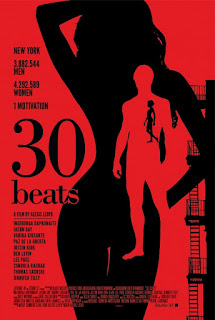
The East
Directed by Zal Batmanglij
Released May 31, 2013
Some films manage to establish their tones and find their voices from their very first moment. In the opening scene of “The East,” Izzy (Ellen Page) introduces the title group, explaining their mission to ensure corporate accountability and justice for the maltreated, as representative consequences are visited upon the home of a CEO whose company was responsible for a deadly oil spill. From that moment, “The East” is a dark thriller featuring a determined collective with a mission of opening the world’s eyes, and one woman’s mesmerizing experience being exposed to the culture as she goes undercover within it to bring it down from the inside.
“The East” is the second feature film, and the second to deal with cults, from writing team Brit Marling and Zal Batmanglij. As with their previous feature, “Sound of My Voice,” Marling stars and Batmanglij directs. Both screenwriters discussed their experiences going off the grid and immersing themselves in a counterculture lifestyle prior to making the film at a press day in May. Batmanglij detailed the process of “stopping watching films, listening to recorded music, and news, and entering into a capitalistic-free zone, replaced with kissing each other in circles, eating food from the trash, and fixing and riding abandoned bicycles.”
Marling said the experience of ingratiating themselves in the lifestyle was difficult to break away from, and she continues to think about it all the time. Batmanglij contrasts the egalitarianism of anarchist collectives with the hierarchy of film sets, which he describes as more of a circus than anything else. Batmanglij says he had this experiences and had to make a movie to digest it. He adds that the Occupy movement happened three weeks into preproduction, and they were seeing images of what they had experienced, which made making the film all the more relevant.
“The East” attempts to frame the world of eco-terrorism in a specific way, starting with a driven young woman, Sarah (Marling) hired by an private intelligence firm to infiltrate the mysterious group The East. As Sarah cuts herself off from the material world, she wades into the unsettling and unfamiliar universe inhabited by the members of The East, who turn to Benji (Alexander Skarsgard) for guidance, despite his insistence that he is not their leader. Skarsgard, whose work on “True Blood” as sarcastic vampire Eric makes him a perfect candidate to play the dry, inspiring Benji, explains that Benji hates cults and cult leaders and the idea of following people blindly. The East, he says, is a true democracy. Page, who portrays Izzy, that the lifestyle is something their characters truly believe in, and while her involvement comes from profound anger, it doesn’t take away the validity of witnessing atrocities and wanting to do something about it.
“The East” can be seen as a call to action, whether or not its instructions are specific. Batmanglij describes the notion of “going home and Googling your drugs when they are prescribed, something doctors wouldn’t want, but we should be responsible to know what we’re putting into our body.” He compares in-house drug tests with the concept of film studios writing their own movie reviews. Marling admits that she doesn’t necessarily have a solution, but people have to be talking about it first. Batmanglij is not sure if film shave the power to change, but he is more secure that hey can reflect the world back to us in a way that makes more sense.
Its social implications are worthy of further discussion, but aside from its message, “The East” is a strong and intense film. Marling, Skarsgard, and Page are all well-cast in their distinctive roles, as are Patricia Clarkson as Sarah’s mentor and boss and Toby Kebbell as Doc, one of the members of The East who himself is suffering from the unexpected effects of an everyday pharmaceutical drug. The story unfurls in an extremely compelling fashion, and the film ends up at an unexpected and thought-provoking conclusion. This is a fine thriller that doubles as a socially conscious film, equally worthwhile for both cinematic and educational purposes.
A-
















